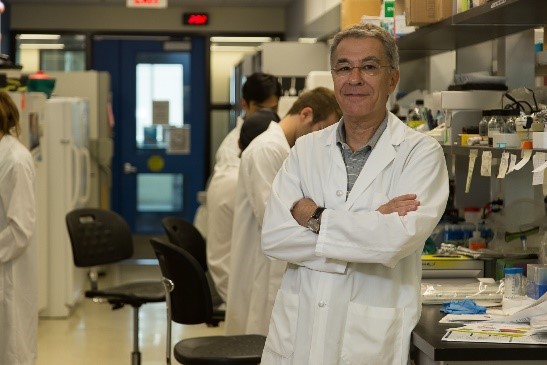Below you will find our latest update regarding McDonald’s, and details about exciting new research from Hamilton’s McMaster Immunology Research Centre that has been recently published. The research looks at the cause of lifelong food allergies. Check it out!
The latest with McDonald’s
 As you know, last month, we met with President & CEO John Betts and his team at McDonald’s to discuss their recent allergy-related changes and how they impact this community.
As you know, last month, we met with President & CEO John Betts and his team at McDonald’s to discuss their recent allergy-related changes and how they impact this community.
It was a good first meeting where we had an open dialogue with McDonald’s on this issue and brought forward your feedback regarding these changes. McDonald’s expressed their commitment to working with us.
Since then, we have continued meeting with the senior staff at McDonald’s to discuss how they can support this community, including how they can communicate more clearly about their allergen statement and policies.
We’ll keep you updated when we have more to share on our progress!
Exciting new research looks at the cause of lifelong food allergies
New research led by Drs. Manel Jordana and Susan Waserman’s research team from Hamilton’s McMaster Immunology Research Centre, was recently published in The Journal of Allergy and Clinical Immunology (JACI). The research paper titled “Lifelong Memory Responses Perpetuate Humoral Th2 Immunity and Anaphylaxis in Food Allergy”, looked at why there are lifelong food allergies to certain foods (e.g. fish, shellfish, nuts). Food Allergy Canada is one of three funders that contributed to this important research, thanks to the generous donations from the Sean Delaney Memorial Golf Classic.
The current understanding about why food allergy persists is taken from knowledge about immune responses to viruses, bacteria, or vaccinations, which are completely different immunologically than food allergy. While IgE antibodies can protect us from parasites, poisons, and venoms, they can also trigger allergic reactions – including anaphylaxis to foods. What researchers have understood until recently about lifelong food allergy is that the cells that produce IgE (called plasma cells) were long lasting, but this had never been fully tested.
In the research paper, it was shown that these cells have a surprisingly short lifespan, so they need to be frequently replaced to maintain IgE levels in circulation and, hence, clinical food allergy. The researchers also discovered that memory B cells corresponding to the food allergen can last far longer – virtually a lifetime. As the name suggests, these cells remember the food allergen, and become reactivated whenever they encounter the allergen, thus replenishing the cells that produce IgE.
This exciting research can explain lifelong peanut allergies as the result of repeated allergen exposures that keep on activating allergen-specific memory cells. There is now additional ongoing research at McMaster in human cells and systems into ways of disabling the process that maintains and activates these memory responses, and developing possible transformative therapies for food allergy.
To read the research paper, please visit JACI.

